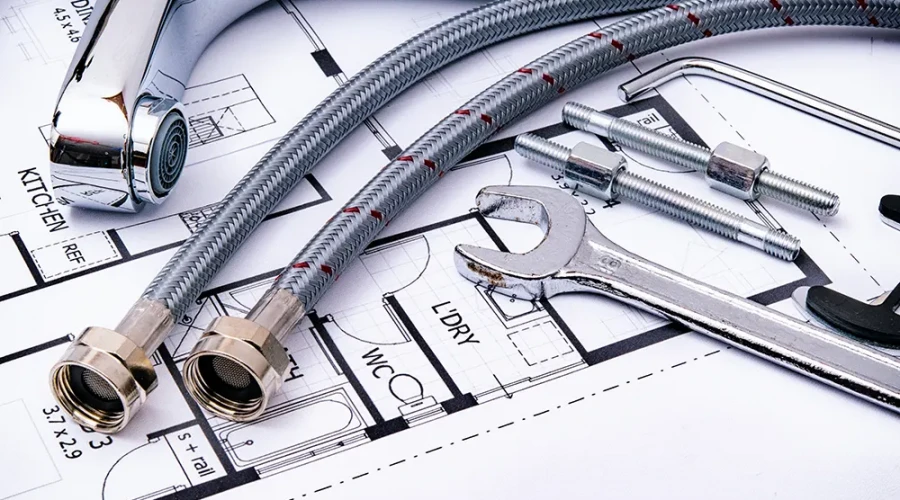13 DIY Plumbing Mistakes You Should Avoid at All Costs
- Home
- >>
- 13 DIY Plumbing Mistakes You Should Avoid at All Costs

Are you considering taking on some plumbing work in your home? Maybe you want to repair that annoying leaking faucet or install a brand new sink. Although DIY plumbing can save you some money, it's important to know that it's not as easy as it seems. Plumbing mistakes can be costly, time-consuming, and can even cause serious damage to your property. Don't believe me? Ask your neighbor who tried to fix their sink and ended up with a swimming pool in their bathroom. In this article, we will discuss some of the most common DIY plumbing mistakes that you should avoid at all costs.
Table of Contents
1. Introduction
DIY plumbing can be a rewarding experience, but it's important to know what you're doing before you start. Plumbing mistakes can be costly, time-consuming, and can even cause serious damage to your property. So, let's get our facts straight before we dive into the nitty-gritty of plumbing.
2. Not turning off the water supply
One of the biggest mistakes that DIY plumbers make is not turning off the water supply before starting work. This can lead to a flooded bathroom or kitchen and can cause serious damage to your property. So, turn off the water supply before you make a mess!
3. Using the wrong tools
Using the wrong tools is another common DIY plumbing mistake. Using pliers instead of a wrench, for example, can damage the pipes and make the problem worse. So, don't get all plumber-crazy and make sure you have the right tools for the job.
4. Over-tightening connections
Over-tightening connections is another mistake that DIY plumbers often make. Tightening connections too much can cause the pipes to crack and can cause leaks. So, don't get too excited and use a wrench to tighten connections just enough to prevent leaks.
5. Using too much drain cleaner
Using too much drain cleaner can damage your pipes and cause leaks. Drain cleaners are also harmful to the environment. If you have a clogged drain, try using a plunger or a plumbing snake instead. Don't be a drain on the environment!
6. Ignoring leaks
Ignoring leaks is a common mistake that can cause serious damage to your property. If you notice a leak, don't ignore it. Fix it right away before it gets worse. Don't let it drip, drip, drip!
7. Incorrectly installing a water heater
Installing a water heater can be a complex job. If you don't know what you're doing, you can cause serious damage to your property. So, don't get in hot water and leave water heater installation to the professionals.
8. Mixing up pipes
Mixing up pipes is another common mistake DIY plumbers make. Using the wrong type of pipe can cause leaks and damage your property. Make sure you use the correct pipe for the job.
9. Inadequately sealing pipes
Inadequately sealing pipes is another blunder that can cause leaks. Ensure that you use the correct type of sealant for the task and apply it appropriately.
10. Neglecting leak tests
Neglecting leak tests is another mistake that can inflict severe damage to your property. Always test for leaks once you've completed your plumbing project.
11. Incorrectly installing fixtures
Incorrectly installing fixtures is another mistake that can cause leaks and damage your homestead. Ensure that you follow the manufacturer's instructions carefully and use the appropriate tools and materials for the task.
12. Using too much force
Using too much force is another common mistake that DIY plumbers make. Applying too much pressure can damage pipes and connections. Use a gentle touch and avoid using excessive force.
13. Not knowing when to call a professional
While DIY plumbing can save you money, there are some jobs that are best left to the professionals. If you're not sure what you're doing, it's better to call a plumber. Trying to fix a complex problem yourself can end up causing more damage and costing you more money in the long run.
14. Conclusion
In conclusion, DIY plumbing can be a great way to save money and learn new skills, but it's important to know what you're doing before you start. Plumbing mistakes can be costly, time-consuming, and can even cause serious damage to your property. Make sure you turn off the water supply, use the right tools and materials, and follow the manufacturer's instructions carefully. If you're not sure what you're doing, it's better to call a professional.
15. FAQs
Is DIY plumbing really worth it?
Yes, DIY plumbing can save you money, but it's important to know what you're doing to avoid costly mistakes.
How do I know if I should call a professional plumber?
If you're not sure what you're doing or if the job is complex, it's best to call a professional plumber.
What tools do I need for basic plumbing repairs?
You will need a wrench, pliers, a pipe cutter, Teflon tape, and a plumbing snake.
How can I prevent plumbing problems in the first place?
Regular maintenance, such as checking for leaks and cleaning drains, can help prevent plumbing problems.
Can I use any type of drain cleaner?
No, it's important to use a drain cleaner that's safe for your pipes and the environment. Always read the label before using.